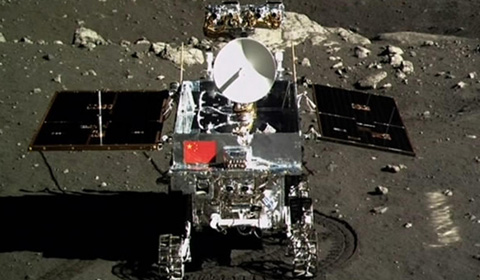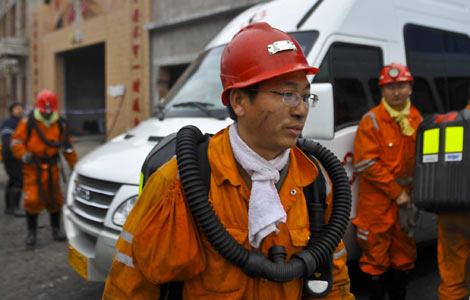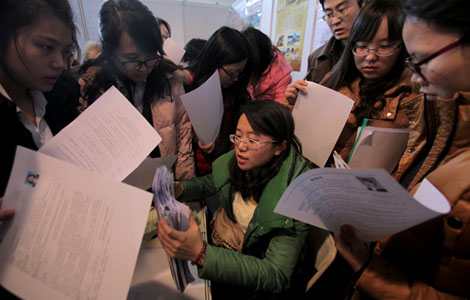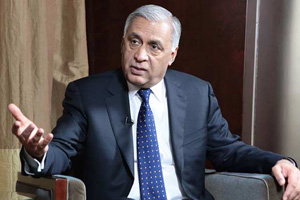Funding, market key in push for urbanization
Updated: 2013-12-15 23:20
By Zhao Yinan in Sanya, Hainan (China Daily)
|
||||||||
As urbanization increases in China, the role of the market and the availability of funds to pay for the changes are vital, officials and experts said.
Even as new-type urbanization has become the latest catchphrase in China, a lot of detailed and difficult work still needs to be done, said Li Tie, director-general of the China Center for Urban Development at the National Development and Reform Commission.
The issue can be distilled to two questions: "What is the prime concept in China's new-type urbanization?" and "How can this concept be carried out, given the flow of millions of farmers into cities?"
Li said at the Sanya Forum on Sunday that the first question was answered at the Communist Party of China Central Committee urbanization meeting, which concluded on Saturday in Beijing.
The closed-door conference clarified that China's urbanization must focus on quality development with no focus on immediate results. But the two-day meeting failed to provide a road map for doing so, he said.
According to a statement released after the central urbanization work conference, urbanization is the road that China must take in its modernization drive, and it offers an important way to address rural problems.
"One principle of urbanization is respecting the rules of the market and avoiding arbitrary decisions made by local governments. The government should go back to its original role of supervision," he said.
The widely expected development plan for the country's medium- and long-term urbanization, which is expected to offer guidance on how to turn the concept into reality, is being revised to incorporate advice from the urbanization meeting, the statement said.
China's urbanization level is 52.6 percent in terms of permanent urban residents, compared with 80 percent in Western countries.
However, only one-third of the Chinese population possesses a city hukou, which qualifies a resident for better social welfare services than a rural hukou does.
About 250 million former farmers who are now migrant workers have moved to cities, leaving parents and children in rural areas, with the expectation of being recognized as an urban resident. As urbanization is unveiled on a larger scale and land reforms are rolled out, more farmers are expected to move into cities.
Although the State Council said last year that a hukou system reform will be launched, it has not yet released any details.
But Saturday's statement of urbanization did set out a basic principle for the reform. It promises to fully remove hukou restrictions in towns and small cities, gradually ease the restrictions in midsize cities, set reasonable conditions for settling in large cities, while strictly controlling the population in megacities.
As the curtain of new-type urbanization is about to open, Wang Jianlin, president of Dalian Wanda Group Corp Ltd, said it is crucial to first figure out how the urban society can absorb the millions of former farmers, including providing them job opportunities, welfare, education and public services.
"In other words, it is a matter of how the society could find enough and sustainable money to do this," he said, "If the government cannot solve this problem, new-type urbanization will only be an empty concept."
Hong Qi, president of China Minsheng Banking Corp, said the central and western provincial areas, where the drive for economic growth were not as strong as eastern cities but the urbanization will mostly take place, have to find their own way to raise money.
"Issuing government bonds to sponsor quality enterprises and encouraging social investment in industries with local characteristics, such as the tea industry and tourism, can all boost local economic momentum," he said.

 Moon rover, lander photograph each other
Moon rover, lander photograph each other
 With a hole in its heart, South Africa buries Mandela
With a hole in its heart, South Africa buries Mandela
 After the storm
After the storm
 Guangzhou beats Al-Ahly 2-0 at Club World Cup
Guangzhou beats Al-Ahly 2-0 at Club World Cup
 Two students wounded in US school shooting
Two students wounded in US school shooting
 21 died in Xinjiang coal mine explosion
21 died in Xinjiang coal mine explosion
 Mandela's body transferred to Qunu village
Mandela's body transferred to Qunu village
 Postgraduates get hard lessons at job fair
Postgraduates get hard lessons at job fair
Most Viewed
Editor's Picks

|

|

|

|

|

|
Today's Top News
Complacency hindering US adoption of energy strategies
DPRK leader's aunt unscathed after purge
Cave art's wide influence explored
Vaccines suspended after deaths
China reports new H7N9 case
Chang'e-3 mission 'complete success'
Mandela laid to rest
'Jade Rabbit' rolls to moon surface
US Weekly

|

|






